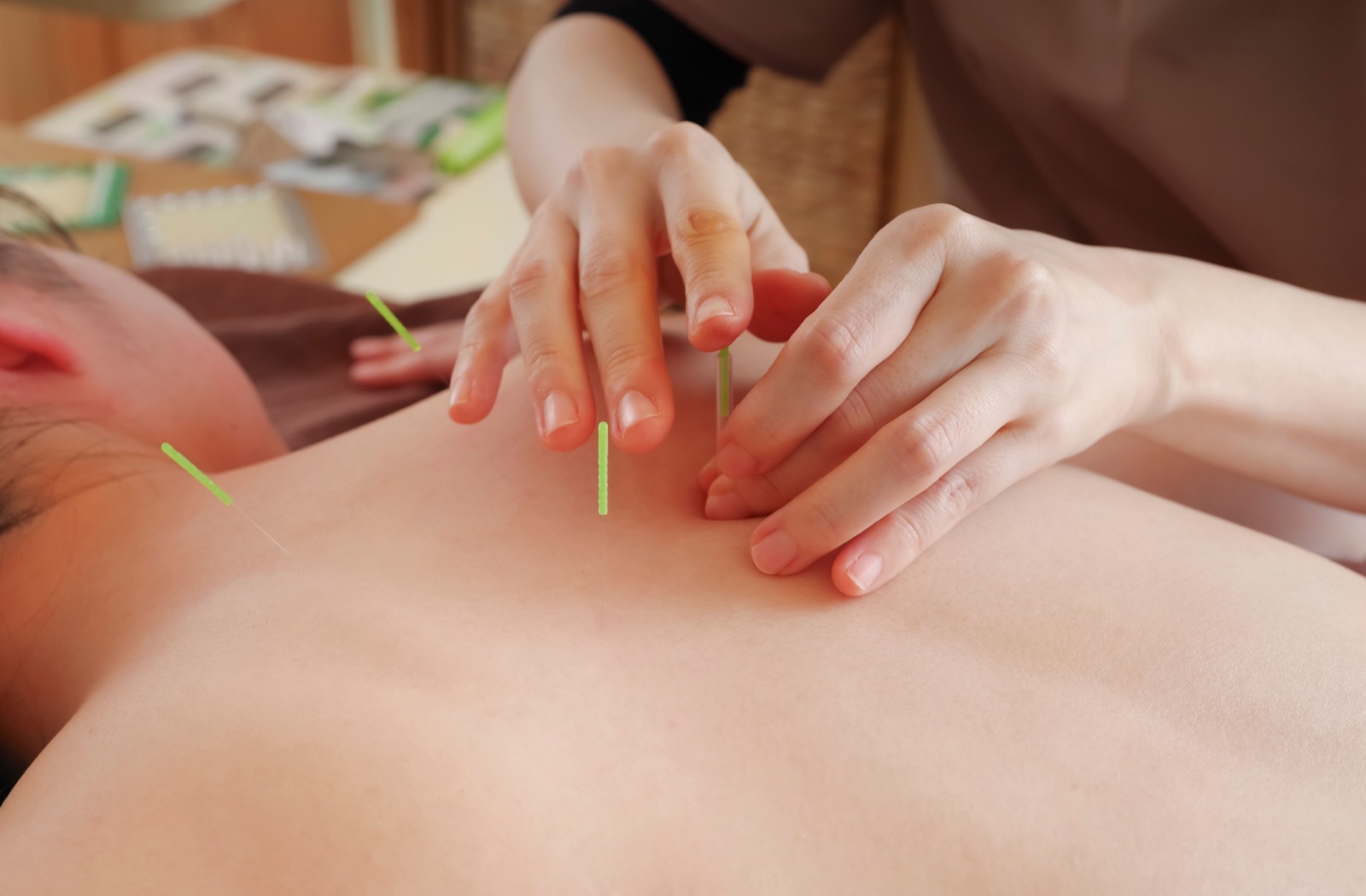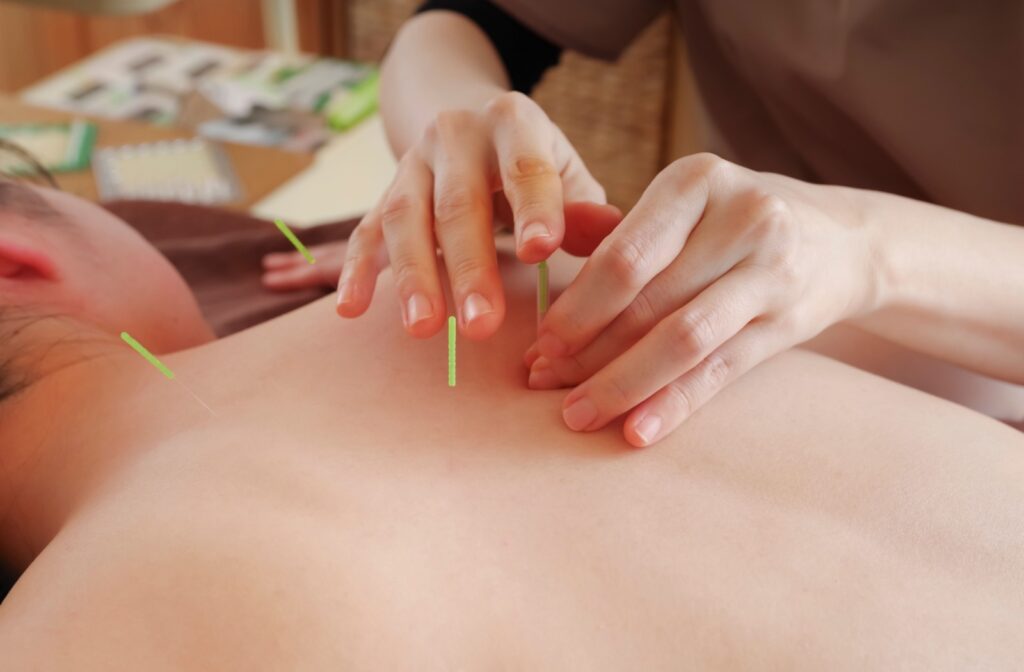Nerve damage can lead to pain, tingling, numbness, or weakness that affects daily life in profound ways. It may develop from injuries, chronic illnesses such as diabetes, or conditions like sciatica and peripheral neuropathy. While conventional medical treatments can play an important role in managing symptoms, many people explore complementary therapies such as acupuncture to support healing and improve comfort.
Acupuncture has been used for centuries in traditional Chinese medicine, and in recent decades it has been studied through the lens of modern science. But can it help with nerve damage? Acupuncture may help support nerve function and reduce symptoms such as pain, tingling, or numbness, though results can vary depending on the type and severity of nerve damage.
By looking at both traditional and scientific perspectives, it’s possible to gain a clearer understanding of how acupuncture may fit into care for nerve-related conditions.
The Traditional Chinese Medicine Perspective
How Qi & Meridians Relate to Nerve Health
From the traditional Chinese medicine (TCM) point of view, acupuncture works by balancing the flow of energy, or Qi, throughout the body. Nerve damage in this framework is often understood as a blockage or disruption in the pathways of energy that run along the body’s meridians.
Needle Stimulation & Energy Flow
Acupuncture needles are placed at specific points to stimulate these meridians, promoting the smooth flow of Qi and restoring balance to the body. Practitioners believe this helps reduce pain, improve circulation, and support the body’s natural healing processes.
Although TCM describes these processes in energetic rather than anatomical terms, many people report relief from symptoms like numbness, tingling, or chronic pain after treatment.
The Modern Medical Perspective
In modern medicine, acupuncture is studied for its effects on the nervous system and pain signalling. Researchers suggest that inserting fine needles into the skin stimulates sensory nerves, which then send signals to the brain and spinal cord. This process may trigger the release of natural chemicals such as endorphins and neurotransmitters, which can reduce pain and improve mood.
Acupuncture may also help increase blood flow in targeted areas, supporting tissue repair and reducing inflammation. These effects could be particularly relevant for conditions involving nerve damage, since oxygen and nutrient delivery to nerve tissues is important for healing.
Research Findings on Acupuncture & Nerve Damage
Scientific studies on acupuncture and nerve damage show mixed but promising results. Some clinical trials and reviews have found improvements in neuropathic pain, while others suggest modest or limited benefits. The variability often depends on the type of nerve injury, the severity of symptoms, and personal differences in response.
Conditions Studied
For example, research has looked at acupuncture in cases of:
- Peripheral neuropathy, where acupuncture may reduce pain and tingling associated with diabetes or chemotherapy
- Sciatica, with some evidence of reduced pain and improved function
- Carpal tunnel syndrome, where numbness and discomfort related to median nerve pressure may be eased
While results aren’t consistent across all studies, many researchers view acupuncture as a potentially helpful complementary option when integrated with conventional medical care.
Potential Benefits of Acupuncture for Nerve Damage

The possible advantages of acupuncture in nerve damage care can include both physical and emotional aspects.
- Reduction of chronic pain that may accompany nerve injury
- Decreased tingling or numbness that interferes with daily activities
- Improved circulation to support nerve and tissue health
- Enhanced relaxation and stress reduction, which can influence pain perception
- Support for overall well-being, helping people cope with long-term conditions
These outcomes vary, and not everyone responds in the same way. Still, many people find value in acupuncture as part of a larger care plan that may also include medication, physical therapy, or lifestyle adjustments.
Considerations & Realistic Expectations
It’s important to approach acupuncture with realistic expectations. While some people may notice improvements after just a few sessions, others may require ongoing treatment to experience benefits, and some may not notice significant changes at all.
Factors that influence outcomes include the type and extent of nerve damage, how long the condition has been present, and overall health. Acupuncture is generally considered safe when performed by a qualified practitioner, though minor side effects like bruising or soreness at the needle site can occur.
Taking a Holistic Approach
For many people, acupuncture is appealing not just for its potential effects on nerve health, but also for the sense of holistic care it provides. Sessions often create space for relaxation and self-care, which can positively influence how the body responds to stress and pain. When combined with medical treatments, lifestyle changes, and rehabilitative therapies, acupuncture may contribute to an overall strategy for managing nerve damage.
Next Steps
If you’re considering acupuncture for nerve damage, consulting a qualified acupuncturist is an important first step. A practitioner can discuss your health history, evaluate your condition, and recommend a personalized treatment plan. Speaking with your healthcare provider can also help you decide how acupuncture might fit into your broader care approach.
For those in search of support, Running Shoe Restorative Healthcare offers patient-focused, evidence-based treatments that combine modern medical knowledge with holistic approaches to healing. Schedule a consultation with Running Shoe Restorative Healthcare today to discuss your symptoms and explore how acupuncture could be integrated into a personalized plan for nerve health.





